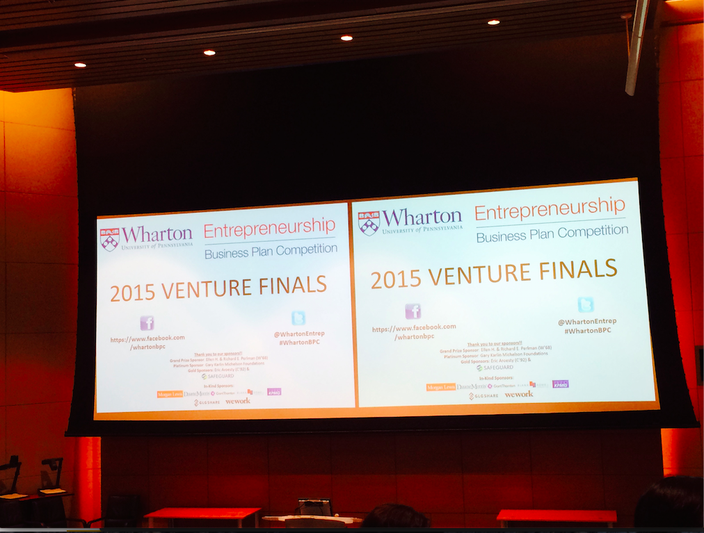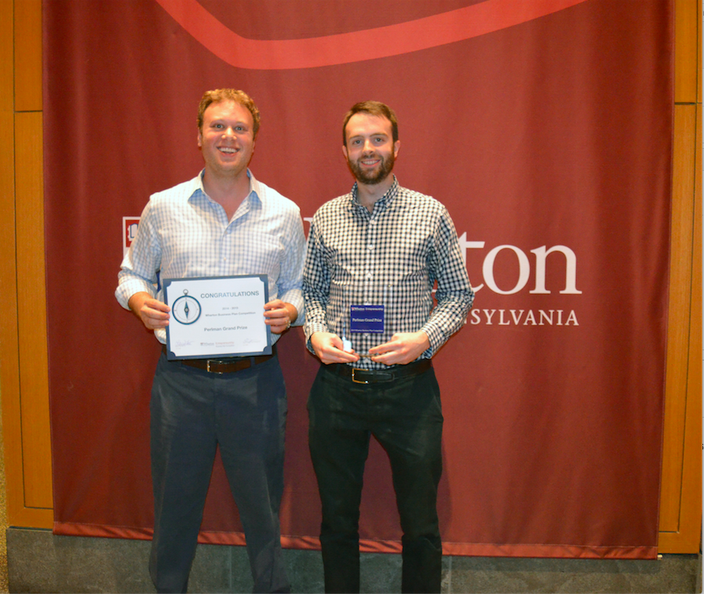
May 07, 2015
If you've ever found yourself marathoning through episodes of ABC's "Shark Tank" and dreaming up business ideas that will take you to the promised land, there's a good chance your fantasies are skipping straight from A to $$$.
The proliferation of e-commerce has opened up a universe of data that businesses can analyze to refine user experience and drive greater results. For brick and mortar retail establishments, however, the shopping experience can be more difficult to measure, creating a massive data gap. That's where Yash Kothari and Pranshu Maheshwari have stepped in with Prayas Analytics, a solution that leverages existing surveillance video footage to help retail operations teams analyze queue length, speed of service, customer abandonment and other store metrics.
Positioning itself as the Google Analytics for physical stores, Prayas monitors, tests and predicts patterns in retail stores to optimize labor costs, evaluate staff performance and help stores improve their operations.
Bridging philanthropy and volunteerism can be ineffective in terms of achieving maximum social good. Corporations seek to give back to society. Volunteers strive to uplift communities. So far, the need to quantify these higher-order benefits, among employees and consumers, has lacked a social platform to connect nonprofits, volunteers and philanthropists.
Tess Michaels and Natasha Doherty developed Soceana as a way to link volunteer hours with charitable contributions. Using a patent-pending digital social currency called Philas, Soceana allows volunteers to earn, store and gift the currency to social causes of their choice, pledged by corporations, in effect multiplying millennials' giving. With top leaders from LinkedIn and the Gates Foundation serving as its advisers, Soceana plans to launch its platform this summer and will partner with companies such as Cisco, Comcast, Lincoln Financial and HP, tapping into youth and educational networks as well.
The four freshmen behind Third Eye are a team of hustlers who approach business with an engineering mentality. Their company seeks to enhance the lives of the visually impaired, who number more than 30 million in the United States alone. Third Eye's assistive technology uses Google Glass to power object recognition software that users activate by voice command. Simply by saying, "Okay Glass, recognize this," Third Eye users can identify everything from U.S. currency to water bottles, medications and text.
By partnering with visually impaired organizations such as the National Federation for the Blind, consulting with ophthalmologists, and working in dedicated settings like the Wills Eye Institute and the Overbrook School for the Blind in Malvern, Third Eye has begun testing and perfecting its product while making rounds at top incubators and venture capital firms. Eventually, the company plans to extend its technology to military and facial recognition applications.
Getting kids to eat healthy foods can be a monumental challenge. As a parent, cooking healthy meals that your kids refuse to eat (seemingly because you made them) can become wasteful when it happens too often. Kid Foods fixes this problem with a $60 weekly subscription service that delivers lunches and snacks to your home for children and pre-teens. These meals, developed by an in-house chef and nutritionist, eliminate the need to plan, prepare, cook and serve nutritious foods on a daily basis. Furthermore, the kids are given a menu to choose from, enabling them to participate in forming a balanced diet.
Having worked out a sales and marketing partnership with The Food Trust, the team of Neil Vangala, Rishi Reddy and Jessica Winschei will launch Kid Foods in May and aim to expand the business locally with a focus on young professionals. Moving forward, the company plans to partner with summer camps and schools to provide natural, healthy, reliable and fun foods that teach kids important lessons about making choices.
Traditional thermometers can be an inconvenient and unreliable way to monitor fluctuations in body temperature, whether it's for a routine illness or a more serious condition that can suddenly produce a crisis. To solve this problem, Aaron Goldstein and the team behind Fever Smart developed a noninvasive, easy-to-use technology that can help at-risk patients avoid infection.
Fever Smart's product works using a small disposable patch applied to the patient, called the "Brain Unit," and a "Relay Unit" that continuously transmits real-time core body temperature data to the company's servers. With any smartphone or Internet-connected device, users can monitor the patient's temperature, whether to care for sick children or help ovulating women identify their ideal basal temperature for fertility. Fever Smart raised more than $60,000 during its initial Indiegogo crowdfunding campaign (over 150 percent of its target) and hopes to expand from the consumer market to the B2B hospital and government markets.
Tom Austin and Zack Stiefler have zeroed in on a match between low market saturation and dissatisfaction with existing providers of renters' insurance. Recognizing the emergence of Millennials as a generation of long-term renters, they created a brand around the consumer habit that defines and unites this cohort: the Internet.
Bungalow Insurance is positioned as a departure from the frustrating process of being re-routed to in-person agents, which incidentally results in fewer people taking out a renters insurance policy. While 67 percent of the people polled by the company said they believe renters insurance is a good idea, only 37 percent of those respondents have it. Working through channel partnerships, Bungalow offers an automated online purchasing solution that enables affiliates to distribute the product to tenants.
From greenhouse gas emissions and soil erosion to chemical runoff and inefficient water use, today's agricultural practices are no longer environmentally sustainable at the scale required to feed growing populations. FOCUS Foods' innovative aquaponics systems seek to bring hyperlocal urban farms to grocers and farm-to-table restaurants in cities around the world.
Julia Kurnik and Geoff Becker plan to install FOCUS Foods' aquaponics inside staff-operated greenhouses on the tops of stores. Growing fruit, fish and vegetables in a stand-alone design will eliminate transportation and distribution costs and reduce the environmental impact of food production by using less fuel, water, pesticides and fertilizer. The company plans to get its first farm up and running at a Shop Rite location in Philadelphia. The brand derives its name from the following acronym. Fresh. Organic. Community-oriented. Urban. Sustainable.
We often hear that "it's what's inside that counts," but it takes some shrewd marketing to apply that concept to a luxury fashion brand. Rel Lavizzo-Mourey and the rest of the Silver Lining team produce outerwear lined with custom work from established artists, digitally printed-to-order and "installed" inside trench coats and other military noir-style field jackets. Using the finest materials, the company relies on an aggressive yet curated marketing strategy, driving awareness through social media and blogs.
The company also carries a social mission, with six percent of its gross profits going to arts education programs for underserved youth, such as the the Root Division's program in San Francisco. Silver Lining, which has a purchase price of $400-$600 on average, more than $28,000 in pre-sales. It's highly customized and durable collection fuels Silver Lining's ambitious goal to establish a foothold in the $22 billion U.S. outerwear market.
After five hours of PowerPoints, hard-charging financials, and determined propositions to meteorically scale up and around again, the six judges began the difficult process of deliberation.
Leaders from each team were happy to share their impressions on the competition as a whole, expressing gratitude for the way it has helped them propel their plans into action.
"Throughout this process, it's been really helpful to get feedback from alumni and world experts in the healthcare field," said Fever Smart's Aaron Goldstein. "It gives us the validation we need to press forward with the growth of our business."
The guys from Third Eye made as if they would give out Google Glasses to the crowd, but then turned up an empty box and declared themselves college freshmen despite the whole business thing. They were especially thankful for the judges' specific suggestions and the environment of the competition.
"I think it's really cool to see the entrepreneurship that's going on at Penn. It's been visible to me in other ways, but to see everyone together for a competition like this is really exciting," said Joe Cappadona, a Penn engineering student.
Third Eye's team leader, Rajat Bhageria, elaborated on how the competition appealed to the team as a group of entrepreneurial engineers.
"I have to say that even though I study computer science and engineering, I find myself way more passionate about business," Bhageria said. "I love to talk to people and bring products to market, so to also have the ability to build things out really helps with the business side of things. We're now testing and refining extensively so that we can make the best product possible."

